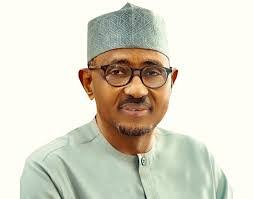Mr Farouk Ahmed, Authority Chief Executive, Nigeria Midstream and Downstream Petroleum Regulatory Authority (NMDPRA), says the authority has created Nigeria’s most transparent and predictable petroleum regulatory framework.
Ahmed, represented by Mr Ayo Cadoso, South-West Regional Coordinator of NMDPRA, stated this on Tuesday at the ongoing 2025 COREN Summit in Lagos.
The theme of the summit is ‘Refinery – Key to Energy Security in Africa.’
According to Ahmed, the NMDPRA has developed and gazetted 18 key regulations covering every phase of refinery development, from establishment through to operations.
He said: “These regulations were not developed in isolation.
“They were co-created with industry stakeholders to ensure they are practical, bankable, and investor-friendly.
“This is what we mean by regulatory certainty — clarity of rules, fairness in enforcement, and confidence in outcomes.”
Ahmed noted that NMDPRA’s mandate extends beyond regulation. He said: “We are actively facilitating industrial growth.
“We are working across agencies and the entire value chain to guarantee crude oil supply to all licensed refineries through structured nomination and supply mechanisms.”
He added that the authority ensures efficient evacuation and logistics for refined products to reach markets, while promoting transparent practices for fair competition.
Ahmed also said the authority ensures Naira-denominated crude sales to shield refiners from foreign exchange volatility.
He added that NMDPRA has accelerated approvals and permits under clear service-level agreements, providing technical and commercial support throughout project lifecycles.
“These initiatives form part of our optimisation framework, which converts regulatory stability into investment confidence and boosts domestic refining capacity,” he said.
Ahmed stressed that investor confidence depends on consistent policy and regulatory integrity.
“Investors must trust that rules will not change midstream and that their returns are secure within a fair market structure,” he noted.
He highlighted major reforms achieved in the past four years, including downstream liberalisation and updated transportation codes to support modern infrastructure.
“These are not mere policy statements — they are actionable goals under our 2025 Refining Acceleration Plan.
“Nigeria’s energy future will be defined by clarity, confidence, and collaboration. “We are not just refining crude oil — we are refining our economic destiny,” he stated.
Ahmed said that when regulators act with integrity, investors trust the process, and consistent policies can enable Nigeria to power itself and the rest of Africa.
“At NMDPRA, our promise is simple — to regulate with clarity, facilitate with credibility, and lead with courage.
“Today, I speak not just as a regulator, but as a firm believer in Nigeria’s capacity to redefine her future.
“For too long, we exported crude and imported refined products — a paradox that weakened our economy. But that story is changing,” Ahmed said.
He acknowledged the transformative impact of the Dangote Refinery and the growing number of licensed modular and conventional refineries.
“Nigeria stands at the threshold of a historic transformation — from dependency to dominance, from importer to net exporter of refined petroleum products,” he said.
According to him, two key pillars will drive this refining revolution — Regulatory Certainty and Investor Confidence.
Ahmed also commended the summit’s engagements, including the Women in Refining session and the keynote dinner on ‘Private Refining as a Catalyst for Energy Security.’
“We reaffirmed that refining is not just a business — it embodies energy sovereignty, economic resilience, and industrial strength,” he said.
